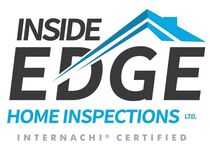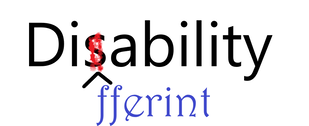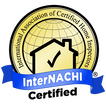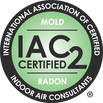Mike's Home Inspector BlogMichael Burfitt |
|
April 2nd is World Autism Awareness Day, and this is a topic I feel passionate about almost as much as I do about home inspections. Why? Because your favourite inspector has been diagnosed with Autism, otherwise known as autism spectrum disorder (ASD). While Autism is classified as a permanent disability, I prefer to think of it as a different-ability, mostly because less than 2% of the population falls under the criteria for ASD. There are a lot of harmful myths around people on the spectrum, the worst being that they are incapable of being good employees or even being successful in life. Let's shatter that myth right now! One of the motivations for starting my own company from the ground up was a desire to be a trailblazer: studies have shown that up to 65% of Autistic adults are unable to find employment and this is not because of any lack of talent or job skills: the entire job search process is often stacked against those in the autistic community, something I know and have experienced firsthand many times in my working career.
Here are a few reasons why, if all goes well in the coming years, it will be an easy decision to hire neurodivergent people if the opportunity arose. Being on the spectrum, I know what an untapped market this is! Attention to Detail One of the hallmark traits of autism is an acute attention to detail. For a home inspector, this can be a tremendous asset. Those on the spectrum often excel at noticing small discrepancies or irregularities that others might overlook. From identifying cracks in the foundation to pinpointing subtle signs of water damage, individuals with autism can offer a meticulous eye during the inspection process. I recently spotted an issue that turned out to be major, saving my clients about $8000 in repair costs! Pattern Recognition Individuals with autism frequently demonstrate a talent for pattern recognition. This ability allows them to discern underlying structures or trends that may not be immediately apparent to others. In the context of home inspection, this skill can be invaluable when analyzing complex systems such as electrical wiring or plumbing (I like to think of this as my greatest strength). By recognizing patterns in these systems, inspectors can more effectively identify potential issues and provide thorough assessments to their clients. Sensory Sensitivities Many individuals on the autism spectrum experience sensory sensitivities, meaning they may be more attuned to environmental stimuli such as light, sound, or texture. While this is often seen only as a negative trait, it can also offer unique insights during a home inspection. Sensory-aware inspectors may notice subtle cues – like the hum of an appliance or the feel of a draft – that could indicate underlying problems within the home's infrastructure. I have caught many issues because of my hypersensitivity. Communication and Client Interaction There is a common belief that those on the spectrum are poor communicators and therefore can't make good home inspectors. While some individuals with autism may face challenges in social communication, many develop effective strategies for navigating interactions with others. Home inspectors on the spectrum can leverage their skills to provide clear explanations and address client concerns. Our direct communication style and ability to convey complex information in a straightforward manner can foster trust and confidence in clients. In the world of home inspection, diversity of thought and perspective is essential. By embracing neurodiversity and recognizing the strengths that individuals with autism bring to the table, we can enrich the field and better serve our clients. From their acute attention to detail and pattern recognition skills to their unique insights into sensory experiences, home inspectors on the autism spectrum offer a valuable perspective that enhances the quality and thoroughness of the inspection process. We at Inside Edge are a company that strongly values diversity and inclusion: it is not just a meaningless platitude, it is the backbone of the entire company based on direct, personal experience. Neurodivergent people can always feel comfortable around our company and if I am ever in a position to hire, there is no need to worry about being treated unfairly or having to pretend to be someone else. In the meantime, just remember if you have met one person with Autism, you have met one person with Autism, likely someone with incredible untapped potential! One of the great things about being the founder and president of a small company is that I can handle many of the business tasks myself and nearly everything is handled by our family. This gives me great freedom to provide outstanding value and go the extra mile (or 1.6 kilometres if you prefer). I personally answer all calls, read all texts and emails, and give clear answers to all inquiries even if I believe another professional would be better suited for your needs. It is great to be free to speak without following a corporate script but there are a few phrases you will never hear me (and hopefully no other home inspector) utter.
This House is Overpriced/A Great Deal/Just Right I certainly have personal opinions on the current housing market, but they are just that: personal. As a professional home inspector who also completed a business degree, I have extensive training in the subject of making optimal financial decisions within budget constraints. However, this is beyond the scope of an independent home inspector. You will never hear me advise whether you should buy a house or not, but I will alert a client if I believe their expectations are greatly misaligned with my observations, such as expecting a turnkey home when it needs extensive maintenance. The Home is Full of Dangerous Mold/Asbestos Contrary to popular belief, there is no way to identify ‘toxic’ mold or asbestos from a visual examination alone. Are there signs that a house almost certainly has issues with either? Absolutely but there is no way to be 100% sure without a lab test. While beyond the standard of a home inspection I usually alert my clients if further testing or evaluation is recommended but you will never see me make any definitive statements because they simply cannot be made in the field. Call Me to Fix This Issue One of the many requirements of being a member of InterNACHI (the International Association of Certified Home Inspectors) is to follow their code of ethics (InterNACHI Code of Ethics). This is more than a meaningless platitude: everyone who is affiliated with our company is expected to follow it without exception. One such requirement is to avoid all real or perceived conflicts of interest. Therefore, while I fancy myself a bit of a handyman, we InterNACHI members are not permitted to perform repairs for an extra fee for 12 months. Yes, I will occasionally tighten a loose screw or clear a gutter blockage if I am safely able to, but you will never see me charging extra. The inspection fee is the only price I charge and if the inspection takes far longer than expected you still don’t receive any additional invoice or other hidden charges. Please Listen Closely to Our Menu Options Few things annoy me more than calling a company and having to navigate unclear menus only to be sent to the wrong department. Amazingly these same companies almost always have a ‘higher than normal’ call volume and my ‘call is important’ despite spending significant time on hold. While I am frequently away from the phone, make no mistake I will always call back as soon as possible and will give you a clear answer to your inquiry. I am aware that the majority of people calling me can be under a great deal of time pressure and stress, whether it be because they are dealing with the various steps of a real estate transaction, dealing with one of the many issues that being a homeowner can throw at you or are worried about a potential structural problem you can rest assured that we will not add to that stress and can give you clear, immediate answers without having to deal with a headache inducing call centre. One of the questions frequently posed to home inspectors is if a home can fail an inspection and if so, how often do homes fail? The simple answer to that is no: we are independent consultants, not municipal code compliance officers and do not condemn homes. Every client has different expectations and what their tipping point is and will have to make that decision for themselves and as home inspectors we provide the necessary knowledge and facts. Yes, there are a number of issues that are very serious and difficult if not impossible to remedy at a reasonable cost but luckily, they are rare in my experience. One of the ways I accomplish my goal of providing detailed information and organize my reports in a way that is easy to understand is to provide an action list at the end of each report. I then organize tasks based on what I consider the priority level: every inspector is different, but I personally break down my recommendations into four basic categories: In reality, while these specific examples look easy to categorize in many cases a great deal of judgement is used in making proper recommendations. One such example is a cracked foundation: a crack can be a sign of anything from a cosmetic nuisance right up to a symptom of complete structural failure. Luckily the overwhelming majority of cracks are minor but as a home inspector we can advise whether the services of a structural engineer or other specialist should be sought.
As a volunteer first responder, possibly the most important skill other than immediate life-saving actions is to not only report and observe but also to understand when an issue needs further attention and if so, what form it should take: many issues look serious on the surface but are relatively minor while others are only serious to the trained eye and need immediate attention. Developing this skill has served me well as a home inspector too, where I am able to put issues in the proper context, not overreacting or underreacting to what I see. Home inspector's reports do not have a grade and there is no such thing as pass or fail but there are issues with various degrees of seriousness in each and every home. This is why I promote and recommend regular maintenance inspections: we can help you avoid surprises and to plan and budget for preventative maintenance on your terms. If you ever do research on how to become a home inspector or what makes a great home inspector, you will find lots of information on the benefits of having things like a construction, engineering or trades background or a strong eye for detail. One thing that rarely is discussed is the importance of communication: not only to explain potential issues we find but to put them into the proper context using our skills and knowledge. Here are some examples of statements that are 100% true, yet are very misleading:
Electric Heating is 100% Efficient No high efficiency furnace or boiler can compete with electric heat, but this ignores the simple fact that electricity is usually produced by generators which are about 30% efficient. Overall, electric heating is the most inefficient and expensive way to heat a home. Electrical Heating is the Most Inefficient and Expensive Way to Heat a Home Again, this is correct on the surface but is misleading. There are a few advantages of electric heat: no oil or propane tanks are needed, they are easy and inexpensive to install, and they can be relatively easily added to cold areas of a home. They are also great for distant areas where heat is only needed sparingly, such as in a garage or workshop. In short, all heating sources have advantages and disadvantages and that is why there are so many different examples seen in homes. Radon is a Radioactive, Tasteless, Odourless Gas That is Everywhere and There is No Safe Limit You can also substitute "Carbon Monoxide” and this statement would again be true but misleading. Every single home has radon and while there is no agreed safe limit the Canadian guideline is 200 becquerels per cubic metre (200 Bq/m3) and no action is recommended unless the long-term levels in your home exceed this. I have discussed this in depth in a previous blog post, but the bottom line is radon can indeed be dangerous but, in many cases, it is not a concern. Inside Edge Home Inspections Ltd. Uses an Unlicensed Home Inspector Sounds shocking that I would admit this is true until you learn that in Canada ALL inspectors outside of British Columbia and Alberta are unlicensed: a license not only is not required but does not exist. Furthermore, as of 2021, there are absolutely no requirements to anyone calling themselves a home inspector in any of the Atlantic Provinces. Our website demonstrates my impressive credentials and extensive experience, including completing 340 hours and counting of continuing education just in 2021 alone. If licensing becomes available our company will be first in line to sign up and I run our company to the point getting a license would be very easy if available. The reality is we are fully incorporated in Nova Scotia, our company is a certified member of InterNACHI, the world’s largest home inspection organization, and I am a Certified Professional Inspector with InterNACHI. Our passion is providing quality, independent home inspections and we fully support all efforts to raise the standards in our industry. |
Archives
July 2024
Categories
All
|
|
Inside Edge Home Inspections Ltd.
Halifax, NS 902-209-9921 [email protected] Proudly Serving the HRM & Central Nova Scotia |



 RSS Feed
RSS Feed

